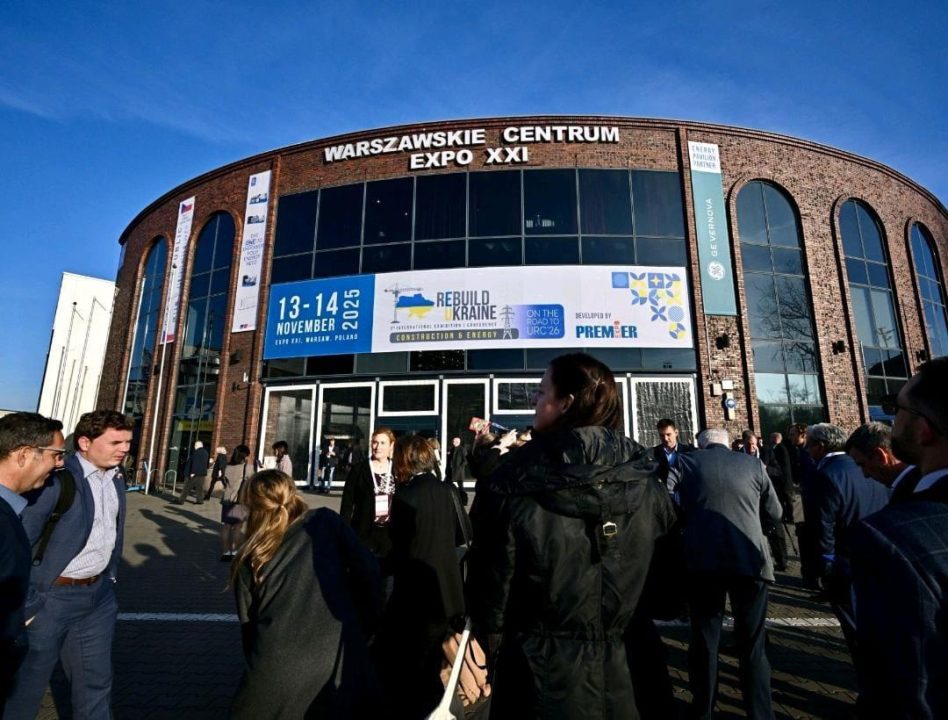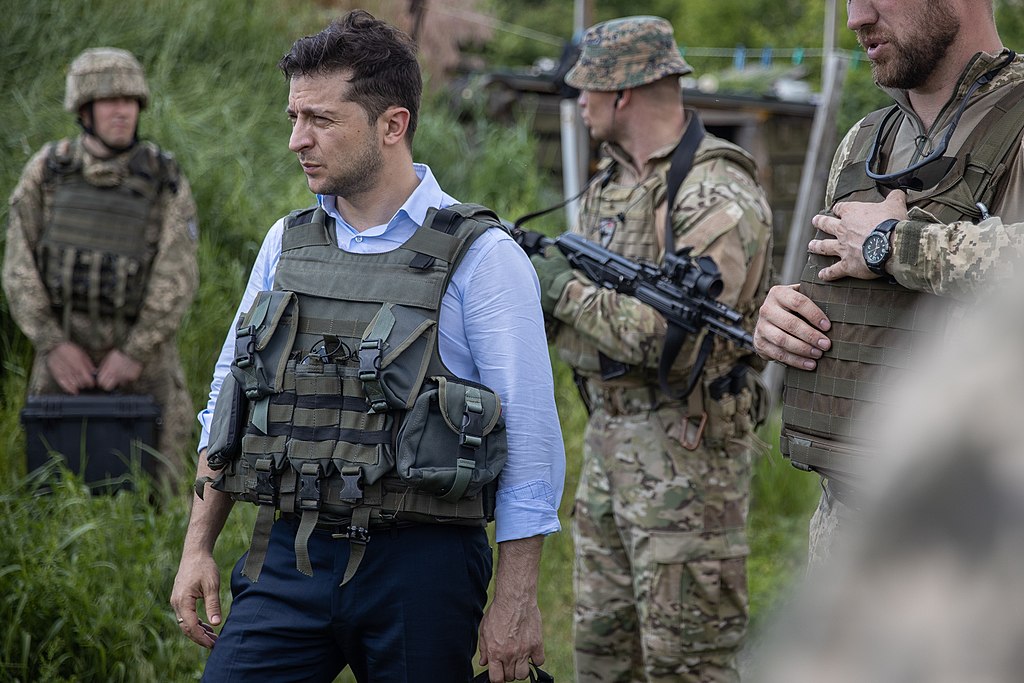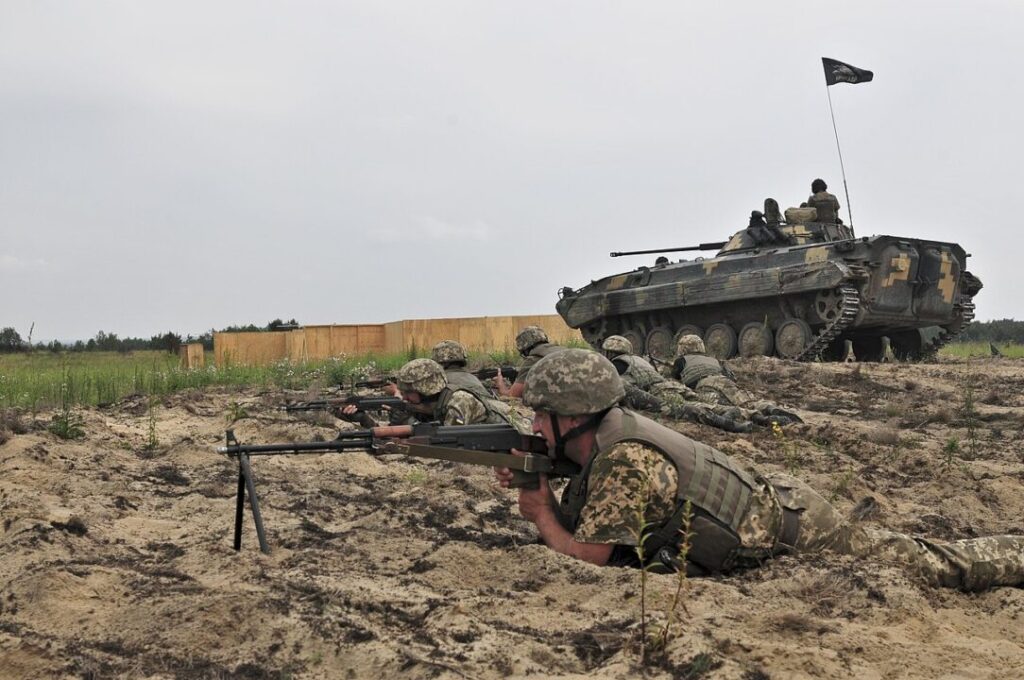Di Cristina Di Silvio*
VARSAVIA. Nel mezzo della guerra più lunga e feroce del continente dai tempi del ’45, l’Ucraina scopre il suo fronte più pericoloso: quello interiore. Lo scandalo di corruzione nel settore energetico, cento milioni di dollari evaporati tra appalti e tangenti, non è un episodio isolato, ma il simbolo di una fragilità sistemica.
Mentre a Varsavia si celebra Rebuild Ukraine 2025, la conferenza che promette la rinascita del Paese, Bruxelles e Washington osservano in silenzio. Perché il problema non è solo come ricostruire, ma chi lo farà e con quale credibilità.
La guerra d’invasione continua, ma il nemico oggi non porta divise.
Agisce nei contratti, nelle firme, nei silenzi amministrativi. È la corruzione, vecchia eredità sovietica e nuova arma di disgregazione. L’indagine NABU–SAPO ha scoperchiato una rete di tangenti dentro Energoatom, il cuore nucleare dell’Ucraina.
Un sistema di mazzette e favori che ha drenato circa cento milioni di dollari, in piena guerra, mentre il Paese sopravviveva a blackout e missili.”La rete energetica ucraina è già sotto pressione per gli attacchi russi. Non può essere indebolita anche dall’interno,” ammonisce un diplomatico europeo.
Dietro l’avvertimento, la sostanza: la fiducia è ormai un bene strategico quanto il gas o l’elettricità. E se salta quella, salta tutto il resto. A Varsavia, il Forum Rebuild Ukraine 2025 avrebbe dovuto segnare l’inizio simbolico della ricostruzione.
Expo XXI: vetrine di progetti, slogan di rinascita, l’Europa pronta a finanziare la ripartenza. Ma il tempismo è crudele: mentre nei padiglioni si parla di trasparenza e sostenibilità, a Kiev si contano le tangenti. Gli investitori ascoltano con interesse, ma anche con sospetto. Ogni nuovo scandalo rischia di congelare miliardi in aiuti.

Ogni inchiesta giudiziaria diventa una crepa nella narrativa della rinascita.
Eppure, è in questa contraddizione che si gioca il futuro ucraino: tra il desiderio di apparire solido e la necessità di purificarsi. Ricostruire, in fondo, non è solo un progetto economico.
È una prova di verità. “A volte non vogliamo essere felici. Vogliamo solo non sparire.” Söderberg descriveva l’animo umano, ma la frase sembra scritta per Kiev.
Ogni Nazione, davanti alla propria sopravvivenza, teme di diventare trasparente.
L’Ucraina, oggi, lotta anche per non svanire politicamente. Vuole essere vista, amata, accolta, integrata. Ma la sete di riconoscimento rischia di spingere a costruire immagine prima che sostanza.
La guerra ha un suono, la corruzione un silenzio. E quel silenzio logora più dei bombardamenti. Perché mina la convinzione, la coesione, il senso di scopo.
La guerra esterna si vince con le armi, quella interna con la coscienza. E la seconda, spesso, è più lunga. Per l’Unione Europea, la crisi ucraina non è solo un fatto esterno, ma un riflesso.
Kiev rappresenta la frontiera morale dell’Europa: se fallisce, fallisce anche la narrativa di Bruxelles come potenza dei valori. L’adesione ucraina non è un atto di carità, ma di coerenza. L’Europa ha investito miliardi e costruito un racconto: l’Ucraina come avamposto della democrazia contro l’autocrazia. Ma la democrazia, per funzionare, deve dimostrare di sapersi governare.
Un Paese che combatte la corruzione con la stessa determinazione con cui respinge i carri armati diventa credibile; uno che la tollera, no.
La conditionality, la clausola che lega aiuti e riforme, non è più una formula tecnica. È la condizione stessa della sopravvivenza geopolitica del progetto europeo.
Ogni euro investito in Ucraina è oggi anche un voto di fiducia nell’Europa che vorremmo essere: un continente che non solo difende i propri confini, ma la propria etica.

L’UE si trova di fronte a un paradosso strategico: sostenere l’Ucraina significa difendere la propria frontiera politica, ma anche esporsi al rischio di importare instabilità.
L’allargamento a est è un investimento di lungo periodo, non solo economico ma culturale. Ogni passo avanti verso Kiev deve coincidere con un rafforzamento delle istituzioni, o la struttura stessa dell’Unione rischia di diventare un guscio fragile.
L’Europa non può permettersi un nuovo “Stato cuscinetto” opaco: servono accountability, trasparenza, controllo civile del potere.
Se Kiev riuscirà a trasformare lo scandalo Energoatom in un punto di svolta, l’Ucraina entrerà davvero nel cuore politico d’Europa. Se invece si limiterà a sopravvivere, diventerà una frontiera perenne: difesa, ma mai integrata.
Per l’Alleanza Atlantica, il caso ucraino non è una questione morale, ma di sicurezza.
La corruzione è una falla di comando. Un contratto truccato può compromettere una centrale, un’informazione venduta può tradire un piano operativo. La corruzione è, in sostanza, una forma di infiltrazione lenta.
La NATO ha imparato, in vent’anni di guerre ibride, che il potere non cade solo per attacco esterno ma per decomposizione interna.
L’Ucraina, oggi, è un banco di prova per l’Alleanza tanto quanto per l’Europa: se riesce a blindare le proprie istituzioni, diventa una barriera solida contro Mosca; se invece le lascia infiltrare dal malaffare, diventa un varco aperto.
Nel linguaggio strategico atlantico, la parola chiave è trust. Un alleato è tale solo se affidabile.
Non bastano i missili, serve una catena decisionale pulita, protetta, impermeabile. Ogni scandalo ucraino fornisce argomenti a chi, dentro l’Alleanza, frena sull’adesione: si può davvero condividere intelligence con un Paese che lotta ancora contro i propri fantasmi interni? Eppure, proprio per questo, l’Ucraina è essenziale.
È il laboratorio della deterrenza del futuro: un luogo in cui si misura la capacità dell’Occidente di integrare, non solo di armare. La NATO, più che mai, osserva Kiev non come un destinatario di aiuti, ma come un test di credibilità globale.
Alla fine, tutto torna a quel vuoto. Non il vuoto delle città distrutte, ma quello invisibile, fatto di disillusione e paura. Ricostruire significa riempirlo di fiducia, non di facciate. Perché un Paese può resistere senza corrente, ma non senza senso.
La guerra ha devastato i corpi; la corruzione minaccia di devastare l’anima. E se l’anima cade, l’Europa intera si incrina.
L’Ucraina è oggi la frontiera della nostra coscienza strategica: combattere, ricostruire, ma soprattutto non mentire. Solo allora la ricostruzione diventerà vera, e l’Occidente potrà dire di avere vinto non solo una guerra, ma la propria prova di verità.
ENGLISH VERSION
UKRAINE: THE WAR WITHIN THE WAR. ENERGY, CORRUPTION, AND THE VOID THAT THREATENS EUROPE
By Cristina Di Silvio*
WARSAW. In the midst of the longest and fiercest war the continent has seen since ’45, Ukraine confronts its most dangerous front: the internal one. The corruption scandal in the energy sector, with a hundred million dollars evaporated in contracts and bribes, is not an isolated incident but a symbol of systemic fragility.
While Rebuild Ukraine 2025 is celebrated in Warsaw, the conference promising the country’s rebirth, Brussels and Washington watch in silence. Because the problem is not only how to rebuild, but who will do it – and with what credibility.
The invasion continues, but today the enemy wears no uniform. It operates through contracts, signatures, and bureaucratic silences. It is corruption: an old Soviet inheritance and a new weapon of disintegration.
The NABU–SAPO investigation uncovered a network of bribes within Energoatom, the heart of Ukraine’s nuclear power. A system of kickbacks and favors that drained around a hundred million dollars, in the midst of war, while the country survived blackouts and missile attacks. “The Ukrainian energy grid is already under pressure from Russian attacks.
It cannot also be weakened from within,” warns a European diplomat. Behind the warning lies the essence: trust has become a strategic asset as vital as gas or electricity.
If that fails, everything else collapses. In Warsaw, the Rebuild Ukraine 2025 forum was supposed to mark the symbolic beginning of reconstruction.
Expo XXI: showcases of projects, slogans of rebirth, Europe ready to finance the restart. But timing is cruel: while the pavilions speak of transparency and sustainability, in Kyiv bribes are being counted.
Investors listen with interest, but also with suspicion. Every new scandal risks freezing billions in aid. Every judicial investigation becomes a crack in the narrative of rebirth.
Yet it is in this contradiction that Ukraine’s future is being played out: between the desire to appear strong and the necessity to purify itself. Rebuilding, after all, is not just an economic project. It is a test of truth.
“Sometimes we do not want to be happy. We just want not to disappear.” Söderberg described the human soul, but the phrase seems written for Kyiv. Every nation, confronted with its own survival, fears becoming transparent.
Today, Ukraine fights also to avoid political erasure. It wants to be seen, loved, welcomed, integrated. Yet the thirst for recognition risks pushing the country to construct image before substance.
War has a sound; corruption is silent. And that silence corrodes more than bombings. Because it undermines conviction, cohesion, and sense of purpose.
External war is won with weapons; internal war with consciousness. And the latter is often longer. For the European Union, the Ukrainian crisis is not only an external matter, but a mirror.
Kyiv represents Europe’s moral frontier: if it fails, Brussels’ narrative as a power of values fails too. Ukrainian accession is not an act of charity, but of consistency. Europe has invested billions and constructed a narrative: Ukraine as the outpost of democracy against autocracy. But democracy, to function, must prove it can govern itself.
A country that fights corruption with the same determination as it repels tanks becomes credible; one that tolerates it does not.
Conditionality, the clause linking aid to reforms, is no longer a technical formula. It is the very condition of the European project’s geopolitical survival.
Every euro invested in Ukraine is also a vote of confidence in the Europe we aspire to be: a continent that defends not only its borders but its ethics. The EU faces a strategic paradox: supporting Ukraine means defending its political frontier but also risking importing instability.
Eastern enlargement is a long-term investment, not only economic but cultural. Every step toward Kyiv must coincide with strengthening institutions, or the Union itself risks becoming a fragile shell.
Europe cannot afford a new opaque “buffer state”: accountability, transparency, and civilian oversight of power are necessary.
If Kyiv succeeds in turning the Energoatom scandal into a turning point, Ukraine will truly enter Europe’s political heart. If it merely survives, it will become a permanent frontier: defended, but never integrated.
For the Atlantic Alliance, the Ukrainian case is not a moral issue, but a security one.
Corruption is a command failure. A rigged contract can compromise a plant; sold intelligence can betray an operational plan. Corruption is, in essence, a form of slow infiltration. NATO has learned, through twenty years of hybrid wars, that power does not fall only to external attack but to internal decomposition.
Today, Ukraine is a proving ground for the Alliance as much as for Europe: if it can secure its institutions, it becomes a solid barrier against Moscow; if it allows corruption to infiltrate, it becomes an open gateway.
In Atlantic strategic language, the key word is trust. An ally is one only if reliable.
Missiles alone are not enough; a clean, protected, impermeable decision-making chain is required. Every Ukrainian scandal gives arguments to those within the Alliance who hesitate on accession: can intelligence really be shared with a country still fighting its internal ghosts? Yet precisely for this reason, Ukraine is essential.
It is the laboratory of future deterrence: a place where the West’s ability to integrate, not just arm, is measured. NATO, now more than ever, watches Kyiv not as a recipient of aid, but as a test of global credibility.
In the end, it all comes back to that void. Not the void of destroyed cities, but the invisible one, made of disillusionment and fear.
Rebuilding means filling it with trust, not façades. Because a country can survive without power, but not without purpose. War has devastated bodies; corruption threatens to devastate the soul. And if the soul falls, all of Europe cracks.
Ukraine today is the frontier of our strategic conscience: to fight, to rebuild, but above all, not to lie. Only then will reconstruction become real, and the West will be able to claim victory not only in war, but in its test of truth.
*Esperta Relazioni internazionali, istituzioni, geopolitica e diritti umani
**Expert in International Relations, Institutions, Geopolitics, and Human Rights
©RIPRODUZIONE RISERVATA

